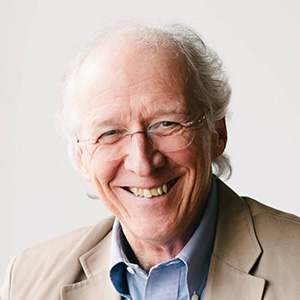God’s call is irresistible in the sense that it can overcome all resistance. It is infallibly effective according to God’s purpose – so much so that Paul can say, “Those whom God called he also justified.” In other words, God’s call is so effectual that it infallibly creates the faith through which a person is justified. All the called are justified. But none is justified without faith (Romans 5:1). So the call of God cannot fail in its intended effect. It irresistibly secures the faith that justifies.
Desiring God, 1996, p. 198, Used by Permission, www.desiringGod.org. Get this book!
There is a war going on. All talk of a Christian’s right to live luxuriantly “as a child of the King” in this atmosphere sounds hollow-especially since the King Himself is stripped for battle. It is more helpful to think of a “wartime” lifestyle than a merely “simple” lifestyle. Simplicity can be very inward directed, and may benefit no one else. A wartime lifestyle implies that there is a great and worthy cause for which to spend and be spent (2 Corinthians 12:15).
Desiring God, 1996, p. 170, Used by Permission, www.desiringGod.org. Get this book!
Selfishness seeks its own private happiness at the expense of others. Love seeks its happiness in the happiness of the beloved. It will even suffer and die for the beloved in order that its joy might be full in the life and purity of the beloved.
Desiring God, 1996, p. 176, Used by Permission, www.desiringGod.org. Get this book!
If created things are seen and handled as gifts of God and as mirrors of His glory, they need not be occasions of idolatry – if our delight in them is always also a delight in their Maker.
Desiring God, 1996, p. 143, Used by Permission, www.desiringGod.org. Get this book!
The evil Satan causes is only by the permission of God…It would be unbiblical and irrelevant to attribute to Satan (or sinful man) the power to frustrate the designs of God.
Desiring God, Bethlehem Baptist Church, used by permission, p. 36, www.DesiringGod.org. Get this book!
God increases our yield so that by giving we can prove our yield is not our god.
Desiring God, 1996, p. 169, Used by Permission, www.desiringGod.org. Get this book!
God increases our yield so that by giving we can prove our yield is not our god.
Desiring God, 1996, p. 169, Used by Permission, www.desiringGod.org. Get this book!
The evil Satan causes is only by the permission of God…It would be unbiblical and irrelevant to attribute to Satan (or sinful man) the power to frustrate the designs of God.
Desiring God, Bethlehem Baptist Church, 1996, p. 36, used by permission, www.desiringGod.org. Get this book!
[Salvation of another] is what man cannot do. It is impossible. Only God can take out the heart of stone (Eze. 36:26). Only God can draw people to the Son (Jn. 6:44, 65). Only God can open the heart so that it gives heed to the gospel (Ac. 16:14). Only the Good Shepherd knows His sheep by name. He calls them and they follow (Jn. 10:3-4, 14). The sovereign grace of God, doing the humanly impossible, is the great missionary hope.
Desiring God, 1996, p. 198, Used by Permission, www.desiringGod.org. Get this book!
Christians can be and ought to be content with the simple necessities of life… First, when you have God near you and for you, you don’t need extra money or extra things to give you peace and security… God is always better than gold… Second, we can be content with the simplicity because the deepest, most satisfying delights God gives us through creation are free gifts from nature and from loving relationships with people. After your basic needs are met, accumulated money begins to diminish your capacity for these pleasures rather than increase them. Buying things contributes absolutely nothing to the heart’s capacity for joy… Third, we should be content with the simple necessities of life because we could invest the extra we make for what really counts (God’s kingdom).
Desiring God, 1996, p. 162-163, Used by Permission, www.desiringGod.org. Get this book!
Are you awake and free from the false messages of American merchandising? Or has the omnipresent economic lie deceived you so that the only sin you can imagine in relation to money is stealing?
Desiring God, 1996, p. 164, Used by Permission, www.desiringGod.org. Get this book!
The good news is that God Himself has decreed a way to satisfy the demands of His justice without condemning the whole human race. Hell is one way to settle accounts with sinners and uphold his justice. But there is another way. The wisdom of God has ordained a way for the love of God to deliver us from the wrath of God without compromising the justice of God. And what is this wisdom? The death of the Son of God for sinners!
Desiring God, 1996, p. 59, Used by Permission, www.desiringGod.org. Get this book!
As Jesus says in Luke 22:26, “Let the leader become as one who serves.” The husband who plops himself down in front of the TV and orders his wife around like a slave has abandoned the way of Christ. Jesus bound Himself with a towel and washed the apostles’ feet. Woe to the husband who thinks his maleness requires of him a domineering, demanding attitude toward his wife. If you want to be a Christian husband, you become a servant, not a boss.
Desiring God, 1996, p. 184, Used by Permission, www.desiringGod.org. Get this book!
The husband is to take his special cues from Christ as the head of the church. The wife is to take her special cues from the church as submissive to Christ. In doing this the sinful and damaging results of the Fall begin to be reversed. The Fall twisted man’s loving headship into hostile domination in some men and lazy indifference in others. The fall twisted woman’s intelligent, willing submission into manipulative obsequiousness in some women and brazen insubordination in others.
The way to think about self-denial is to deny yourself only a lesser good for a greater good… Jesus wants us to think about sacrifice in a way that rules out all self-pity. This is, in fact, just what the texts on self-denial teach.
Desiring God, 1996, p. 202, Used by Permission, www.desiringGod.org. Get this book!
When Paul says, “If the dead are not raised, let us eat and drink,” he does not mean, “Let’s all become lechers.” He means, there is a normal, simple, comfortable, ordinary life of human delights that we may enjoy with no troubling thoughts of heaven or hell or sin or holiness or God – if there is no resurrection from the dead. And what stunned me about this train of thought is that many professing Christians seem to aim at just this, and call it Christianity. Paul did not see his relation to Christ as the key to maximizing his physical comforts and pleasures in this life. No, Paul’s relation to Christ was a call to choose suffering – a suffering that was beyond what would make atheism “meaningful” or “beautiful” or “heroic.” It was a suffering that would have been utterly foolish and pitiable to choose if there is no resurrection into the joyful presence of Christ… Judge for yourself. How many Christians do you know who could say, “The lifestyle I have chosen as a Christian would be utterly foolish and pitiable if there is no resurrection?”
John Piper Desiring God, 1996, p. 219, Used by Permission, www.desiringGod.org. Get this book!
“All things are possible with God!” – in front the words give hope, and behind they give humility. They are the antidote to despair and pride.
Desiring God, 1996, p. 199, Used by Permission, www.desiringGod.org. Get this book!
To love God does not mean to meet His needs, but rather to delight in Him and to be captivated by His glorious power and grace, and to value Him above all other things on earth. All the rest of the commandments are the kinds of things that we will do from our hearts, if our hearts are truly delighted with and resting in the glory of God’s grace.
Desiring God, 1996, p. 259, Used by Permission, www.desiringGod.org. Get this book!
We praise what we enjoy because the delight is incomplete until it is expressed in praise. If we were not allowed to speak of what we value, and celebrate what we love, and praise what we admire, our joy would not be full. So if God loves us enough to make our joy full, He must not only give us Himself; He must also win from us the praise of our hearts – not because He needs to store up some weakness in Himself or compensate for some deficiency, but because He loves us and seeks the fullness of our joy that can be found only in knowing and praising Him, the most magnificent of all Beings.
Desiring God, Bethlehem Baptist Church, 1996, p. 49, used by permission, www.desiringGOD.org. Get this book!
Is this true – that we are selfish and not loving if we are motivated by the promised reward? If so, why did Jesus entice us by mentioning the reward, even giving it as a basis (“for”) our action?… It is simply wrong to say that Jesus does not want us to pursue the reward He promises. He commands that we pursue it (Lk. 12:33; 16:9).
Desiring God, Bethlehem Baptist Church, 1996, p. 166, used by permission, www.desiringGod.org. Get this book!
True worship does not come from people whose feelings are like air ferns with no root in the solid ground of biblical doctrine. The only affections that honor God are those rooted in the rock of biblical truth [John 4:23].
Desiring God, 1996, p. 90, Used by Permission, www.desiringGod.org. Get this book!
Love is the overflow of joy in God! It is not duty for duty’s sake, or right for right’s sake. It is not a resolute abandoning of one’s own good with a view solely to the good of the other person. It is first a deeply satisfying experience of the fullness of God’s grace, and then a doubly satisfying experience of sharing that grace with another person. Buy Now
Selfishness seeks its own private happiness at the expense of others. Love seeks its happiness in the happiness of the beloved. It will even suffer and die for the beloved in order that its joy might be full in the life and purity of the beloved.
Evangelism can never be finished, but missions can be finished. The reason is this: missions has the unique task of crossing language and culture barriers to penetrate a people group and establish a church movement; but evangelism is the ongoing task of sharing the gospel among people within the same culture.
Desiring God, 1996, p. 194, Used by Permission, www.desiringGod.org. Get this book!
In the Minneapolis Star Tribune is an entire section for sports. Can you believe an entire section of the newspaper for sports and not one column for God? Not one column is written about the Maker of the universe who upholds the whole Coles Media industry by the power of his word. Not one minute for God on prime-time news. In twelve years of public education, not one hour relates to God, and not one page in Newsweek or Time. What about evangelicals? I’ve been to church growth seminars where God is not once mentioned. I’ve been to lectures and talks on pastoral issues where he is not so much as alluded to. I have read strategies for every kind of recovery under the sun where God is not there. I have talked to students in seminaries who tell me of manifold, practical courses where God is peripheral at best. I have recently read mission statements of major evangelical organizations where neither Christ nor God is even mentioned.
God is a Very Important Person, Sermon, May 11, 1993, Used by Permission, www.desiringGod.org.
God does not like to be taken for granted. It flies in the face of His eternal purposes – that He be known and loved and praised and enjoyed. And it makes us superficial people… When the main thing is missing, what’s left is distorted and superficial, whatever it is. If someone says, “Oh, that’s just religion,” I answer, “It’s not religion. It’s reality. God made the world and everything in it. He owns the earth and everyone on it. He is the main actor in the world. He is guiding the history of every people and nation to their appointed goals. Everything, without exception, has to do with God and gets its main meaning from God. And not to show this, but to take this for granted, is to be superficial.” It is simply impossible to overstate the importance of God. And He does not like being taken for granted. The psalm does not say, “Great is the Lord, and greatly to be taken for granted.” It says, “Great is the Lord, and greatly to be praised” (Psm. 96:4).
God is a Very Important Person, Sermon, May 11, 1993, Used by Permission, www.desiringGod.org.
All understandings of all things that do not take God into consideration are superficial understandings, since they do not reckon with the true deepest connections with all things with what really matters in the universe, namely God. We today in America can scarcely begin to feel how God-ignoring we have become because it is the very air we breathe. We breathe God-ignoring air.
A God-Entranced Vision of All Things: The Legacy of Jonathan Edwards, Sermon, 2003 Desiring God Conference, Used by Permission, www.desiringGod.org.
When you become so blind that the maker of galaxies and ruler of nations and knower of all mysteries and lover of our souls becomes boring, then only one thing is left — the love of the world. For the heart is always restless. It must have its treasure: if not in heaven, then on the earth.
Used by Permission, Sermon: Malachi 1:6-14, November 1, 1987, www.DesiringGod.org, Used by Permission.
[James 4:3-5] pictures the church as the wife of God. God has made us for Himself and has given Himself to us for our enjoyment. Therefore it is adultery when we try to be “friends” with the world. If we seek from the world the pleasures we should seek in God, we are unfaithful to our marriage vows. And, what’s worse, when we go to our Heavenly Husband and actually pray for the resources with which to commit adultery with the world, it is a very wicked thing. It is as though we should ask our husband for money to hire male prostitutes to provide the pleasure we don’t find in Him!
Desiring God, 1996, p. 141, Used by Permission, www.DesiringGod.org. Get this book!
There will be no people in heaven who want to be around their things more than Jesus.
Embrace the paradox of God’s sovereignty and man’s responsibility. The sad thing is that some embrace the sovereignty of God over the human will and say: “It is wrong to portray God with His arms stretched out, inviting and calling.” And others embrace the responsibility of man and say, “If God invites and calls and beckons, then he can’t really be sovereign over man’s will, and man really is ultimately self-determining and God is not really in control of all things.” Both of these are sad mistakes. It is sad, because one group rejects something deep and precious that God has revealed about Himself for our strength and hope and joy and love – namely, his absolute sovereignty. Oh, how sweet it is when all around our soul gives way, and we need a reliable and firm rock in a world that sometimes seems utterly out of control and meaningless and cruel. Oh, how sweet at these times to know that God is not good and helpless, but good and sovereign. And the other group (who embrace the sovereignty of God) sometimes rejects something utterly crucial for understanding the justice of God in dealing with people, and they fail to see how we should plead with people and persuade people and invite people and woo people with tears, to Christ, and on behalf of Christ.
How Shall People Be Saved? Part 2. Romans 10:13-21, August 31, 2003. www.DesiringGod.org. Used by Permission.
You don’t have to be ascetic, and you don’t have to be afraid of the goodness of physical pleasure, to say that sexual intimacy and sexual climax get their final meaning from what they point to. They point to ecstasies that are unattainable and inconceivable in this life. Just as the heavens are telling the glory of God’s power and beauty, so sexual climax is telling the glory of immeasurable delights that we will have with Christ in the age to come. There will be no marriage there (Matt. 22:30). But what marriage meant will be there. And the pleasures of marriage, ten-to-the-millionth power, will be there.
This Momentary Marriage – A Parable of Permanence, Desiring God Foundation, 2008, p. 127-128, www.DesiringGod.org.
Jesus’ teaching in general [implies] that happy and fulfilling sexual relations in marriage depend on each partner aiming to give satisfaction to the other. If it is the joy of each to make the other happy, a hundred problems will be solved before they happen.
This Momentary Marriage – A Parable of Permanence, Desiring God Foundation, 2008, p. 134, www.DesiringGod.org.
First, faith believes God when He says that sexual relations in marriage are good and clean and should be received with thanksgiving by those who believe and know the truth. Second, faith increases the joy of sexual relations in marriage because it frees us from the guilt of the past. Faith believes the promise that Christ died for all our sins, that in Him we might have guilt-free, Christ-exalting sexual relations in marriage. And finally, faith wields the weapon of sexual intercourse against Satan. A married couple gives a severe blow to the head of that ancient serpent when they aim to give as much sexual satisfaction to each other as possible. Is it not a mark of amazing grace that on top of all the pleasure that the sexual side of marriage brings, it also proves to be a fearsome weapon against our ancient foe?… It is not surprising then that Satan’s defeat, Christ’s glory, and our pleasure should come together in this undefiled marriage bed.
This Momentary Marriage – A Parable of Permanence, Desiring God Foundation, 2008, p.135, www.DesiringGod.org.
What the Bible Says About Joy:
1. Jesus’ aim in all He taught was the joy of His people (Jn. 15:11).
2. Joy is what God fills us with when we trust in Christ (Rom. 15:13).
3. The kingdom of God is joy (Rom. 14:17).
4. Joy is the fruit of God’s Spirit within us (Gal. 5:22).
5. Joy is the aim of everything the apostles did and wrote (2 Cor. 1:24).
6. Becoming a Christian is finding a joy that makes you willing to forsake everything (Mat. 13:44).
7. Joy is nourished and sustained by the word of God in the Bible (Psm. 19:8).
8. Joy will overtake all sorrow for those who trust Christ (Psm. 126:5; 30:5)
9. God Himself is our joy (Psm. 43:4; 16:11).
10. Joy in God outstrips all earthly joy (Psm. 4:7)
11. If your joy is in God, no one can take your joy from you (Jn. 16:22).
12. God calls all nations and peoples to join in the joy He offers to all who believe. No racism. No ethnocentrism (Psm. 67:4; Psm. 66:1).
13. The whole Christian message from beginning to end is good news of great joy (Lk. 2:10; Isa. 51:11).
14. When we meet Christ at His second coming we will enter into his indestructible joy (Mt. 25:23).
Quest: Joy! Found: Christ! Sermon: April 20, 2003, Used by Permission, www.DesiringGod.org.
As Christian hedonist preachers we know that every listener longs for happiness. And we will never tell them to deny or repress that desire. Their problem is not that they want to be satisfied but that they are far too easily satisfied. We will instruct them how to glut their soul-hunger on the grace of God. We will paint God’s glory in lavish reds and yellows and blues, and hell we will paint with smoky shadows of gray and charcoal. We will labor to wean them off the milk of the word onto the rich fare of God’s grace and glory. We will bend all our effort, by the Holy Spirit, to persuade our people:
1. That “the reproach of Christ greater wealth than the treasures of Egypt” (Heb. 11:26).
2. That they can be happier in giving than receiving (Acts 20:35).
3. That they should count everything as loss for the surpassing worth of knowing Christ Jesus their Lord (Phil. 3:8).
4. That the aim of all of Jesus’ commandments is that their joy might be full (John 15:11).
5. That if they delight themselves in the Lord He will give them the desires of their heart (Ps. 37:4).
6. That there is great gain in godliness with contentment (1 Tim. 6:6).
7. That the joy of the Lord is their strength (Neh. 8:11).
We will not try to motivate their ministry by Kantian appeals to mere duty. We will tell them that delight in God is their highest duty. But we will remind them that Jesus endured the cross for the joy that was set before Him (Heb. 12:2), and that Hudson Taylor, at the end of a life full of suffering and trial, said, ‘I never made a sacrifice.”
The root of our sinfulness is the desire for our own happiness apart from God and apart from the happiness of others in God. All sin comes from a desire to be happy cut off from the glory of God and cut off from the good of others.
God’s greatest interest is to glorify the wealth of His grace by making sinners happy in Him.
Our joy in God is insatiably greedy. The more you have, the more you want. The more you see, the more you want to see. The more you feel, the more you want to feel.
Desiring God, 1996, p. 119, Used by Permission, www.desiringGod.org. Get this book!
[James 4:3-5] pictures the church as the wife of God. God has made us for Himself and has given Himself to us for our enjoyment. Therefore it is adultery when we try to be “friends” with the world. If we seek from the world the pleasures we should seek in God, we are unfaithful to our marriage vows. And, what’s worse, when we go to our Heavenly Husband and actually pray for the resources with which to commit adultery with the world, it is a very wicked thing. It is as though we should ask our husband for money to hire male prostitutes to provide the pleasure we don’t find in Him!
Desiring God, 1996, p. 141, Used by Permission, www.DesiringGod.org. Get this book!
The suffering of sickness and the suffering of persecution have this in common: they are both intended by Satan for the destruction of our faith, and governed by God for the purifying of our faith… Christ sovereignly accomplishes His loving, purifying purpose, by overruling Satan’s destructive attempts. Satan is always aiming to destroy our faith; but Christ magnifies His power in weakness.
Desiring God, 1996, p. 216, Used by Permission, www.desiringGod.org. Get this book!
I have never heard anyone say, “The really deep lessons of life have come through times of ease and comfort.” But I have heard strong saints say, “Every significant advance I have ever made in grasping the depths of God’s love and growing deep with him, has come through suffering.” Samuel Rutherford said that when he was cast into the cellars of affliction, he remembered that the great King always kept his wine there. Charles Spurgeon said that those who dive in the sea of affliction bring up rare pearls.
Desiring God, 1996, p. 222, Used by Permission, www.desiringGod.org. Get this book!
Nothing makes God more supreme and more central than when a people are utterly persuaded that nothing – not money or prestige or leisure or family or job or health or sports or toys or friends – is going to bring satisfaction to their aching hearts besides God. This conviction breeds a people who passionately long for God on Sunday morning. They are not confused about why they are here. They do not see songs and prayers and sermons as mere traditions or mere duties. They see them as means of getting to God or God getting to them for more of His fullness.
What does it mean to glorify God? It does not mean to make Him more glorious. It means to acknowledge His glory, and to value it above all things, and to make it known.
Desiring God, 1996, p. 56, Used by Permission, www.desiringGod.org. Get this book!
God will not judge anyone for failing to perform a duty if the person had no access to the knowledge of that duty. But even without the Bible, all people have access to the knowledge that we are created by God and therefore depend on Him for everything, thus owing Him the gratitude and trust of our hearts. Deep within us we all know that it is our duty to glorify our Maker by thanking Him for all we have, trusting Him for all we need, and obeying all His revealed will.
Desiring God, 1996, p. 56, copyright Bethlehem Baptist Church, used by permission, www.desiringGOD.org. Get this book!
The proper understanding of everything in life begins with God. No one will ever understand the necessity of conversion who does not know why God created us. He created us “in His image” so that we would image forth his glory in the world. We were made to be prisms refracting the light of God’s glory into all of life. Why God should want to give us a share in shining with His glory is a great mystery. Call it grace or mercy or love – it is an unspeakable wonder. Once we were not. Then we existed – for the glory of God!
Desiring God, Bethlehem Baptist Church, p. 55, used by permission, www.desiringGOD.org. Get this book!
The nature and depth of human pride are illuminated by comparing boasting to self-pity. Both are manifestations of pride. Boasting is the response of pride to success. Self-pity is the response of pride to suffering. Boasting says, “I deserve admiration because I have achieved so much.” Self-pity says, “I deserve admiration because I have suffered so much.” Boasting is the voice of pride in the heart of the strong. Self-pity is the voice of pride in the heart of the weak. Boasting sounds self-sufficient. Self-pity sounds self-sacrificing. The reason self-pity does not look like pride is that it appears to be so needy. But the need arises from a wounded ego. It doesn’t come from a sense of unworthiness, but from a sense of unrecognized worthiness. It is the response of unapplauded pride. Christian Hedonism severs the root of self-pity. People don’t feel self-pity when suffering is accepted for the sake of joy.
The Dangerous Duty of Delight, 2011, Copyright Desiring God, Used by permission. www.DesiringGod.org.
- « Previous
- 1
- …
- 4
- 5
- 6
Recommended Books
About Piper, John
John Piper was born in Chattanooga, Tennessee, to Bill and Ruth Piper January 11, 1946. When John and his older sister were still small, the family moved to Greenville, South Carolina, where John spent his growing-up years. His father was an itinerant evangelist, and his mother died in 1974 in a bus accident while visiting Israel.
In 1980, sensing an irresistible call of the Lord to preach, John became the senior pastor of Bethlehem Baptist Church in Minneapolis, Minnesota, where he ministered for almost 33 years.
Desiring God began inauspiciously in 1994 when John handed off the church’s tape ministry to his assistant, Jon Bloom.
What started with tapes and John’s books, Desiring God has blossomed into an international web ministry with 12,000+ free resources and 3.5+million monthly users. Today, John serves as lead teacher for the ministry. (Source)









